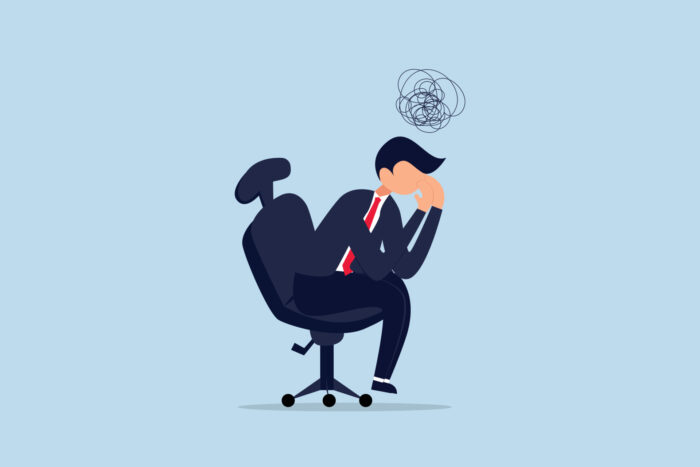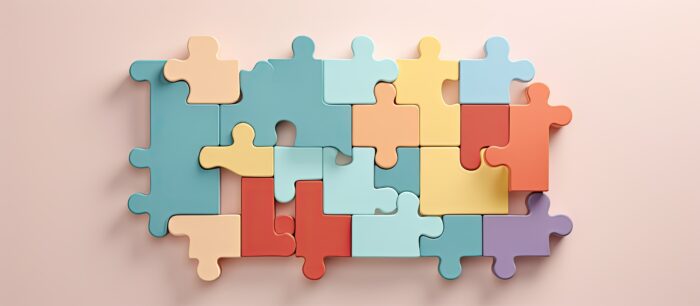Can we do anything?
I recently caught up with an old colleague and mentioned to him that I seem to be slowly overcoming my mid-life crisis, a period I found challenging. He sympathetically responded, acknowledging the difficulty of such experiences and expressing hope that I had received help, as awareness about these situations is still not too common. His insight resonated with me, prompting me to reflect on my journey, which I believe is worth sharing. The fact that I immediately asked for help during the current difficult period, I learned from a much earlier crisis experience.
There was a year in my career when, in addition to my role as a factory manager, I took on an important role in a European project, and the two together demanded well over 14 hours of my day. In addition, as a perfectionist, I wanted to meet the expectations in both cases. I was worried that I could not be present enough, I did not want to let my own team down, nor the project, which I felt very honored to be part of. Compounding these concerns was my chronic difficulty with sleep, at that time I slept with my hands clenched into fists, in the morning I had to uncurl my fingers with force one by one.
It took about six months for me to hit the rock bottom and I developed two remarkable, alarming symptoms. Two, if we consider the cramp of the fingers to be normal. Firstly, I couldn't read, I was simply so distracted and couldn't focus that even reading a 5–6-line email was a task, let alone picking up a book. Secondly my cognitive abilities, my ability to think logically, declined significantly. It was the budget period, I was sitting over a report and I remembered that I understood all the connections and data in it last year, but I could not cope with it this time. I told my colleague that sorry; I cannot handle it this year. Of course, there were frustration and emotional waves, but the loss of my ability to read and think was the most frightening.
Because who am I if I can't think? How can I interpret the world if I can't read what interests me? Who am I if I can't study? How long will the routine at work be enough, and when will it become apparent that my brain is filled with gravel? That was the rock bottom. Since I couldn't do anything other than housework in the afternoons, I was constantly pondering these questions. Anyone, who knows me personally, knows that thinking-reading-learning-working are the four important pillars of my self-awareness. I didn't know how to continue, what if it stays like this???
I am very lucky because there is a therapist in the family who supported me and pushed me to the point where I sought and eventually found help. I embarked on Gestalt-based therapy and started brain training (Mind Alive Inc.) at the same time. This is perhaps a lesser-known option, but it's genius is that it practically retrains the brain to utilize the appropriate brain waves for various activities. It helps for example to process the daytime memories at night, or to slow down in the evening. I remember when they asked me if I really wanted the device because it had a nice price and it needed a significant time commitment, and they could see that I was quite skeptical. I said that I'm practically at the point where if someone says, a secret spell helps, I'm willing to give it a try.
The project started in February, I was completely knocked out by September, I slept for 10 days in December under the title of vacation, and by May of the following year I was back to a "normal" state. Of course, I also had to take a step back at work.
Nekem ez volt a figyelmeztetés, hogy nem bírok ki és el mindent, muszáj vigyázni magamra, mert többet nem szeretném átélni azt a félelmet és elkeseredést.
Since then, I have been consciously monitoring myself and the situations around me, and if the chaos or workload increases - whether due to COVID, family issues or company problems- my first task is to remind myself, that the most important goal is to remain healthy, because if I manage that, I can handle everything else, I can be there for those who depend on me. I no longer see myself as a guinea pig, believing I must solve everything independently. It's simply not worth the risk or time wastage. There are great professionals and very good tools that can make the process a lot easier.
A question that usually comes up when I talk about this is whether I don't feel that I'm not good enough because I can't solve the problem on my own, and what do other people think about it?
Anyone who has worked with a professional knows that it takes far more courage and strength to solve problems with professional help than at home alone, because at home we can hide from ourselves, which therapists do not allow. They ask tough questions and bring attention to aspects we may prefer to avoid, enabling us to progress more rapidly.
And what do other people say? I have found that by treating the process as normal and openly discussing it, when it comes up, I am able to help those around me, because they hear about these possibilities and dare to ask for help. It is about normalizing the idea that we don't have to fight alone. I haven't had a lot of negative feedback so far, but to be honest, it wouldn't affect me too much if there was any, since I want to make my own life as easy as I can.
And it doesn't pay to be a hero, because heroes die early…





